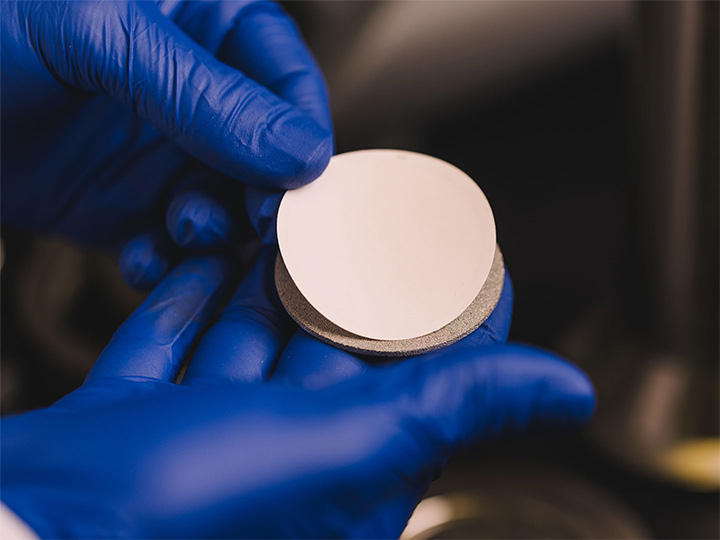
Project Summary
This research aims to improve the efficiency and accessibility of desalination by developing a breakthrough polyamide membrane that significantly increases water flow while maintaining high salt rejection. Traditional desalination membranes face a tradeoff between permeability (how much water can pass through) and selectivity (how well salt and impurities are blocked). Increasing permeability often results in reduced effectiveness, while enhancing selectivity can slow the process and increase costs.
To address this challenge, Assistant Professor Devin Shaffer has developed an ultrathin polyamide membrane with a contorted structure that creates enhanced free volume within the material. This unique design allows water to pass through up to eight times faster than conventional membranes without compromising salt rejection.
By breaking the conventional permeability-selectivity tradeoff, this innovation makes desalination systems—such as reverse osmosis and nanofiltration—more efficient and cost-effective. The improved performance of these membranes could lead to faster, more energy-efficient desalination processes, ultimately lowering costs and increasing access to clean drinking water.